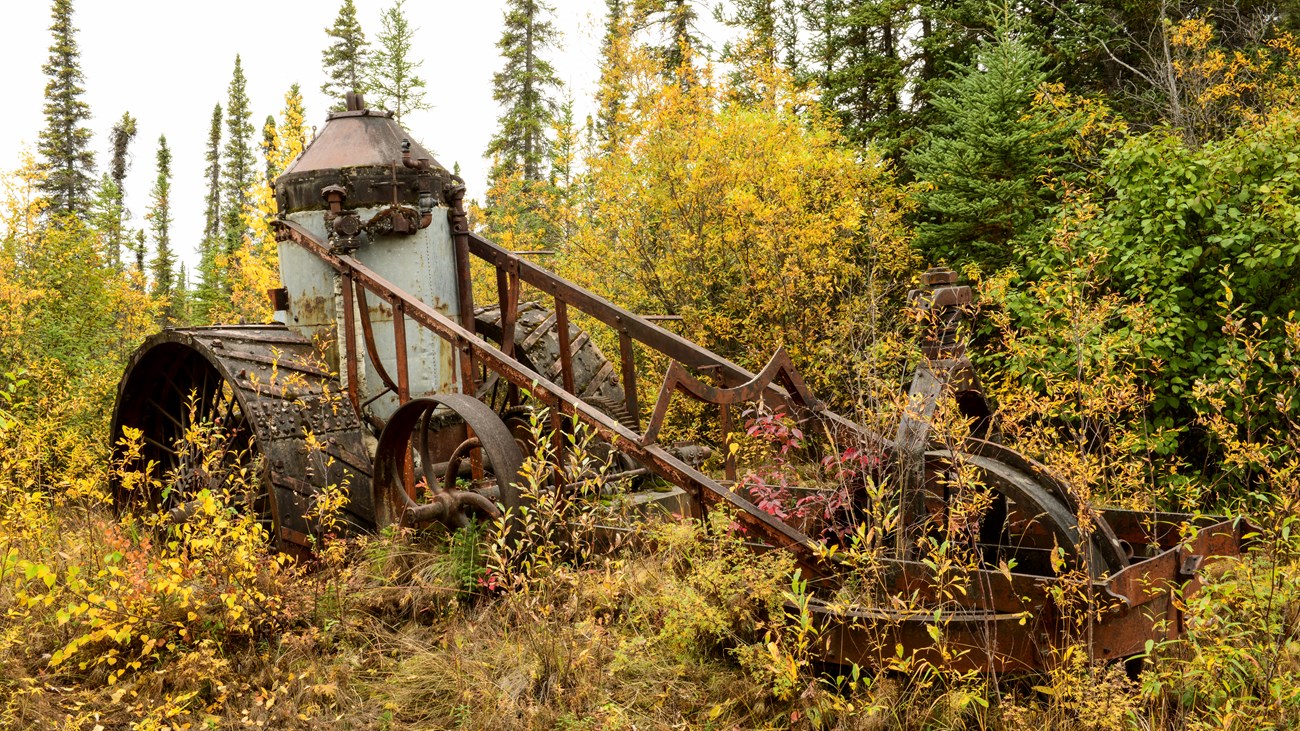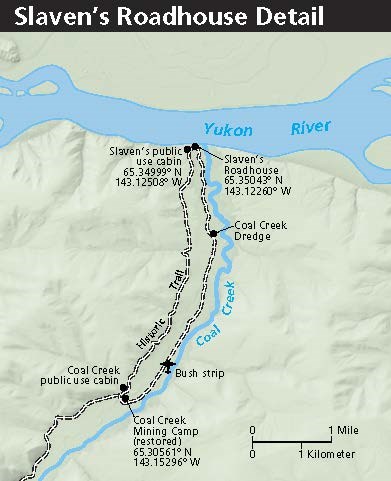|
Numerous unique historic structures represent a rich cultural history within the boundaries of Yukon-Charley Rivers National Preserve. Please be aware that some of the sites in Yukon-Charley Rivers are privately owned and are not open to the public. Please respect and help protect all sites, regardless of whether public or private. Public Use CabinsSeven free, first-come first-serve historic cabins along the Yukon River.Washington Creek Steam Tractor Dr. Ryan, a San Francisco physician, brought in this steam tractor, which rests on river left, two miles below Washington Creek. He intended to use it to pull rail cars laden with coal from the mines in the area but, the coal was such poor quality that the steamboats would not burn it. Like many items imported into the Alaskan bush, parts have been stripped for uses in other areas along the river. The tractor is located on a high bank, visible from the river and is a remarkable artifact to view. 
NPS/Josh Spice Biederman's Fish Camp (Private) Although privately owned, this site is one of the most significant in the preserve as it not only signifies the subsistence lifestyle but also attests to the laborious tasks undertaken by historic mail carriers. As a mail carrier, Ed Biederman made the round trip between Eagle and Circle 13 times each winter. In the summer, Ed boarded dogs for trappers and miners who could not care for them during the warm weather. He spent summer months fishing for more than 40 dogs using two fish wheels. The former Han Athabascan settlement, Charley's Village, was near the mouth of the Kandik River. Kandik is a Han Athabascan word meaning Willow Creek and originally Kandik was the name of the village. Later visitors recorded various names for the village and it was renamed after the chief of the settlement. The remains of the village has long since returned into the earth but, the people themselves retain a rich history. The requested video is no longer available.

Slaven's Roadhouse is just down river from the mouth of Coal Creek on the left bank of the Yukon River. Frank Slaven, a miner, first staked a claim on Coal Creek in 1905 and later built the roadhouse with the assistance of Sandy Johnson, an excellent axeman, and several friends. The roadhouse was used until the 1950's and was listed on the National Register of Historic Places in 1987 and has been restored for use as a visitor contact area and public use facility. The complex is also an official "dog drop" along the 1,000 mile Yukon Quest International Sled Dog Race route. The requested video is no longer available.

The Coal Creek Dredge may be visited by walking a mile up a moderate path from Slaven's Roadhouse. This 4 cubic-foot bucket machine was constructed by the Walter W. Johnson Company of Oakland, CA in 1935 for use in the Coal Creek area. The dredge worked seven days a week, twenty-four hours a day, for the entire mining season with a crew of about ten men. During its lifetime, the dredge recovered more than three tons of gold. It last ran in the summer of 1977 and is a remarkable example of the technology of the era. |
Last updated: January 27, 2022
